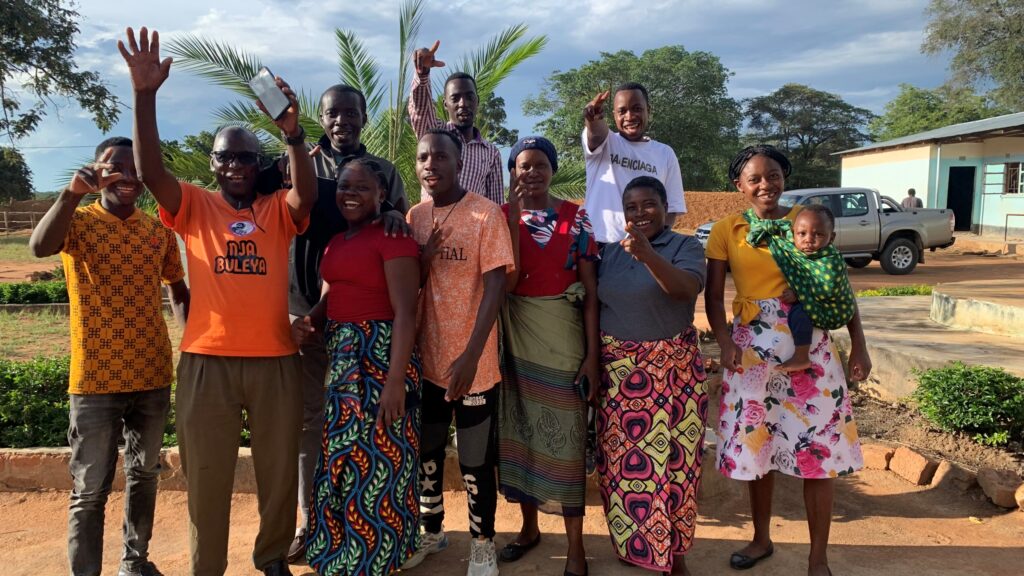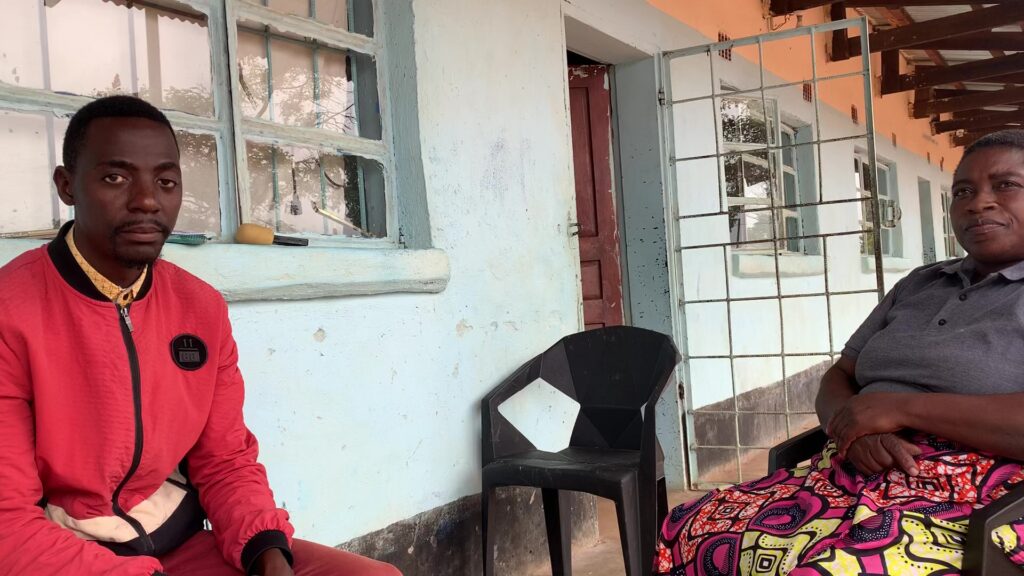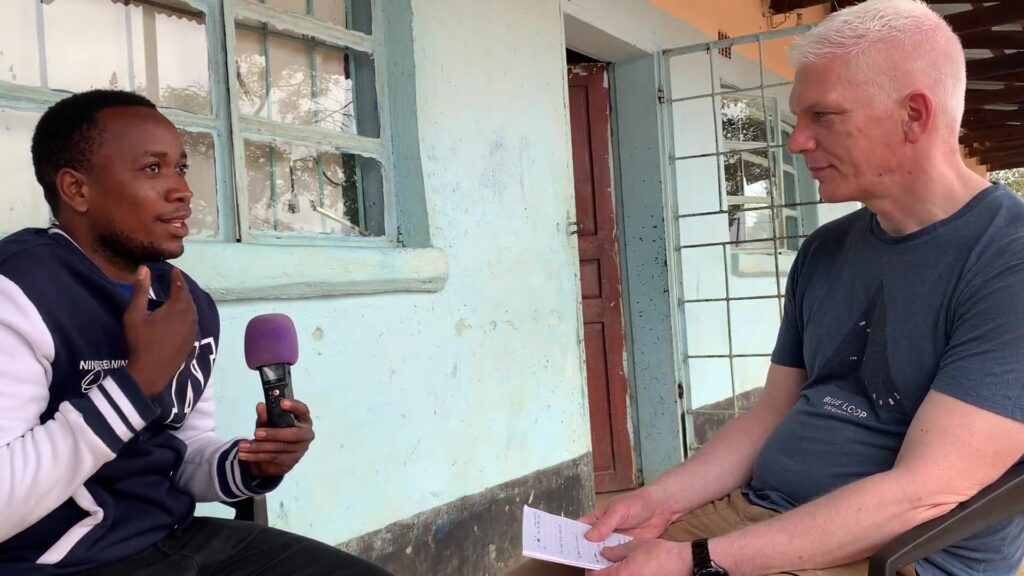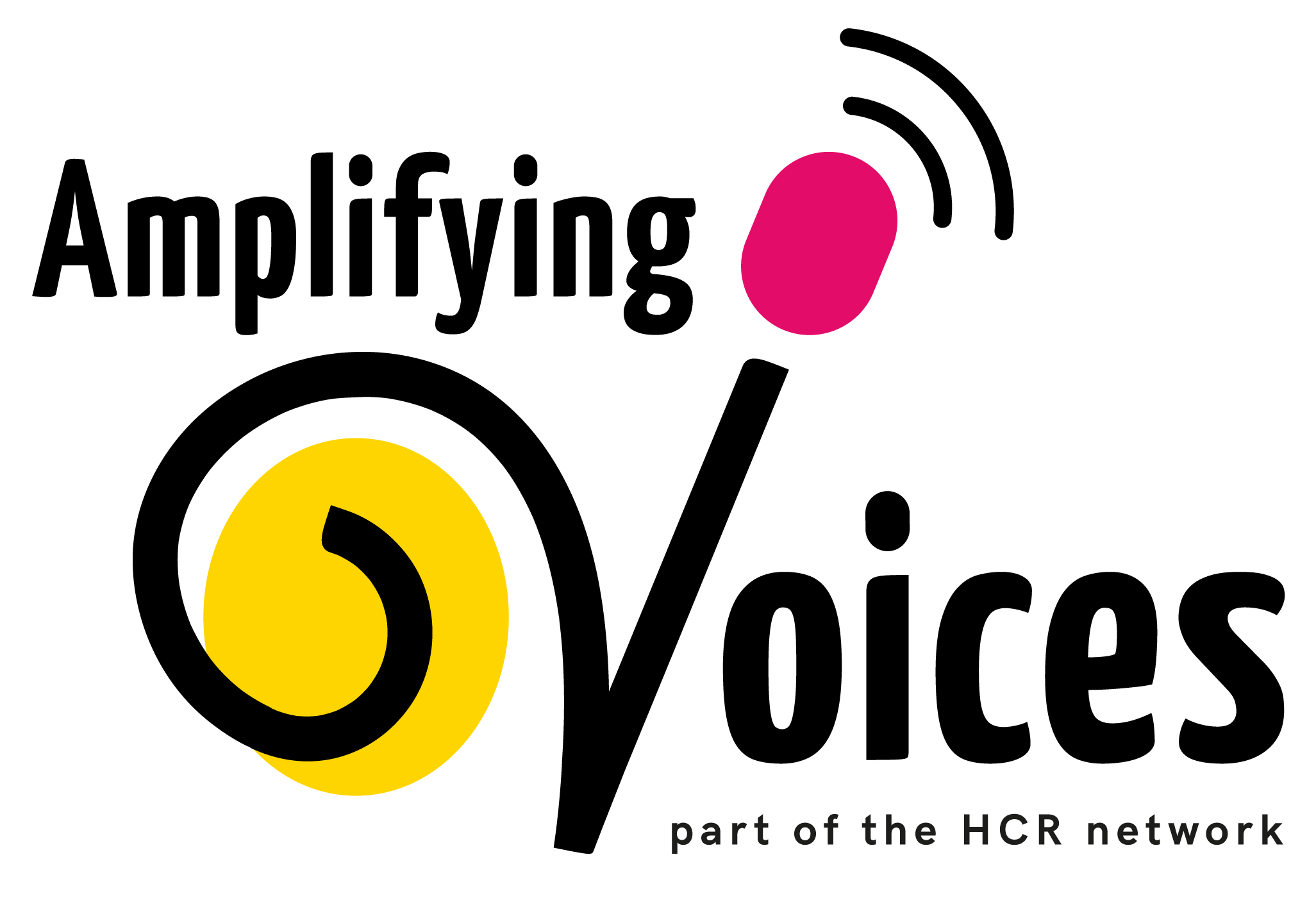
The right people
As part of our ongoing support for Simooya Community Radio, Amplifying Voices recently helped install solar power to provide reliable electricity and consistent broadcasting hours. As important as this will be for the radio station’s future, we find that sustainable community radio depends hugely on the attitudes of the people who run the station. As you read these interviews with volunteers (or “facilitators”), Renny and Mickey, and station manager, Kelvin, where do you see seeds of sustainability?
Renny: This is something I can do to help my community
I live with my husband here in Simooya, I left my own family to come and live here. I arrived in Simooya about 4 years ago. Before I came to Simooya, I was living in Livingstone and made my living from selling and transporting goods from Zambia, to Zimbabwe, Namibia and Botswana.
Back in April 2024, I had asked the volunteers what their hopes were in joining the radio station team. Renny had said that she wanted to be a radio presenter, and a cleaner. So I was interested to hear Renny say she is now working a cleaner and a radio presenter.
Why had you wanted to be a cleaner?
I enjoy cleaning and keeping the studio premises in good condition – I don’t see myself stopping anytime soon – it makes me happy to do it. The equipment in there belongs to the community, and it is being used for the benefit of the community. I have a heart for the community. The equipment is expensive, and this is something I can do to help my community – to make sure the equipment is well taken care of, and making sure the environment is tidy.
What topic are you presenting on the radio?
I make programmes about marital issues, encouraging couples to take care of each other well, to talk to young people who want to get married about what is involved in getting married, what should they expect before going into marriage.
What kind of feedback have you heard from listeners?
Several people have been very appreciative to me. When they meet me they tell me that the things that I’m teaching them are very beneficial to them, especially those who are already married. They said it has improved their standard of living because they know what to do and what not to do.
For yourself and your family, what are your hopes for your future.
I want to see now that my family begins to benefit from some of the things I am getting now, but also, to help others, neighbours, to understand the importance of radio in their community.

Mickey: Every voice is welcome
Tell me something about yourself
At the moment, I live with my mother. My father has passed away. She’s the one who takes care of me. I have lived in Simooya for about 10 years. I am one of the facilitators at Simooya Community Radio station.
When I am not on duty I like to go to the garden, do agriculture and farming. And also in my free time I like to sing gospel songs. I’m a gospel singer.
What is your role at the radio station
I record, package and present radio dramas for on-air broadcast. I’m also a presenter, I talk on farming and encourage people to do farming. I also teach about family life.
What are your favourite programmes to present?
I like drama presentation because that is what I am much involved in. I have about 7 community members from around the village who take part in the dramas.
What opportunities are there for disabled people to get involved?
Every voice is welcome. I try as much as possible to involve everyone. When we conduct community visits, disabled people have an opportunity to speak, to air their voices on the radio, through our visits into homes. If they want to air their concerns, if they want to implore the authorities to do something for them, they can talk through us as we go into the community to interact with community members.
What kind of feedback have you heard from listeners.
People are saying that they now have easy access to information and they are able to air out their views. They can give information about local events to the radio station through the facilitators, so that they can be aired, or if they want to call for assistance from the authorities they are able to do that. After having sports events or organising fixtures, the community members are coming to the radio station to air the announcements.
What changes would you like to see in Simooya?
I hope young people will see facilitators as role models and as they grow up they will take on the work in the radio station so that there is no need to import people from outside. They will be eager to come and learn from the facilitators.
I expect to see a changed community through the programmes we bring, where there should be no more GBV cases, no drug abuse, and no cases of not having access to information.
Hope for the future for you and your family?
It is my first time to work in the media industry. I want to see myself as an empowered person, in terms of academically and also to have more knowledge to empower the community as I do the family life programmes. I also want to see that my family benefit from some of the things that I will benefit from, from the radio station.
Kelvin Muzelenga – station manager

Tell me a bit about yourself…
I am 27, originally from a village called Simanga in the south of Choma district. I grew up in the village as a farmer. I grew up with someone was really interested in listening to the radio. My grandfather used to listen to the radio almost every day. So I also grew up as someone who really loved radio from my early childhood. Sometimes I would go to the extent of making a radio programme on a cassette for others to listen to.
Where do you live now?
I live in Batoka with my wife – we got married in June last year. Batoka is about 18km from Simooya. I travel to the station by motorbike which can take 50 minutes if I take the route through jungle, or 1hr20minutes if I take the safer route through the villages.
What were you doing before you came to Simooya?
I was working at Byta FM. It’s a commercial radio station in Choma, broadcasting to most parts of Southern Province. I worked there for seven years. I started my media career there under a project called Speak Up Youth, sponsored by Alliance for Community Action, funded by the EU. I worked with Byta first as an intern after completing studies in mobile citizen journalism and public resource management. Some of my friends stopped after 1 year, but I continued for another 2 years as a volunteer. I started doing extra learning in the station and became a Tonga language newscaster and radio presenter.
How did you support yourself as a volunteer?
It’s possible if you have passion. I had passion for radio. I grew up in a home where radio was our source of information, and I had that feeling to say, one day I should be on radio. One day I should be heard. That drove me to continue offering my services as a volunteer. I wanted my voice to be on air one day. I wanted to speak for someone else out there. So how I survived, I could do other things too, like I was helping my uncle to do bricklaying. When I was off air I would go to his construction site, and he would give me a token income.
What made you decide to change from a big commercial radio to community radio?
So, I reached a stage where I could do anything, anywhere at Byta, but I felt it was time for me to find something that can challenge me to grow further, and I didn’t want to go outside media industry. But I thought coming to Simooya, where I was going to start something up – that would be another challenge for me.
But also, I think having a passion for the community. Byta is in town and here we’re in rural. I grew up in the village. I understand the village set up. So I felt OK. I think this is my opportunity to offer my services to the community. But I think it’s now time to do what I can do in the community.
How can the Simooya Community Radio help the community here?
The radio is already helping. I’ll give an example of this. Recently there was a national warning from the Disaster Management and Mitigation [regarding unseasonal rains] to say those with crops they should harvest and store them well. And as Simooya community we brought it to a community perspective to say how are you going to use these rains which are late coming? To prepare for the next farming season but also how you going to ensure that these rains are not going to damage your crops?
This community radio station is something that is going to empower their generations in future. But it might not seem like its empowering the people yet.
In Tonga, we have a proverb which says “the root that you have is the rabbit that you would have”. It teaches that when you have something, don’t let it go because it could be what you need survive. So, the community should take care of this radio station for the future.
What sort of things can people in the community do to help the radio?
So, I think the most important thing is to support the radio station. How? By giving it feedback. Where the radio station is moving in a wrong direction, they should freely come to give feedback.
Where possible, they should also try to convince people to come and do business with the station. Of course, that is more critical because for the station to survive going forward. By the help of the community, it will become sustainable.
I think the community, as they do their activities, should also think of how to involve the radio station in those activities so that it can be a two-way thing. Where the station is benefiting, the community is benefiting.
Can you explain that a bit more?
OK, so there are times when there would be, let’s say there are meetings which are called by the chiefs, the traditional chief here. Instead of him going round to say they will be meeting here, the chief can start now adapting to say we have a medium which can spread that information within seconds.
Or maybe they have work activities to do but they also want to go and watch football, they can have the radio station go and broadcast the football. They just have their phone to listen while they’re doing other stuff.
And if you if you were to meet somebody who wanted to start a new community radio station in Zambia in a rural place, what one piece of advice would offer?
The biggest thing is, let them not go with their own people. Let them get the community involved. For example, if I want to open a radio station, I could recruit my people from Choma and bring them to work with me. But instead let’s have the community do it. Let me show the community how it is done and that way the community will feel that they are part of that station. If you bring your professionals it will be a challenge to adapt to the community and difficult for the community to accept the new station.
We are privileged to work with people like Kelvin, Mickey and Renny, and the rest of their team. We look forward to hearing how Simooya Community Radio becomes a sustainable community radio station. You can also follow Simooya Community Radio posts on Facebook and learn more about their community.
